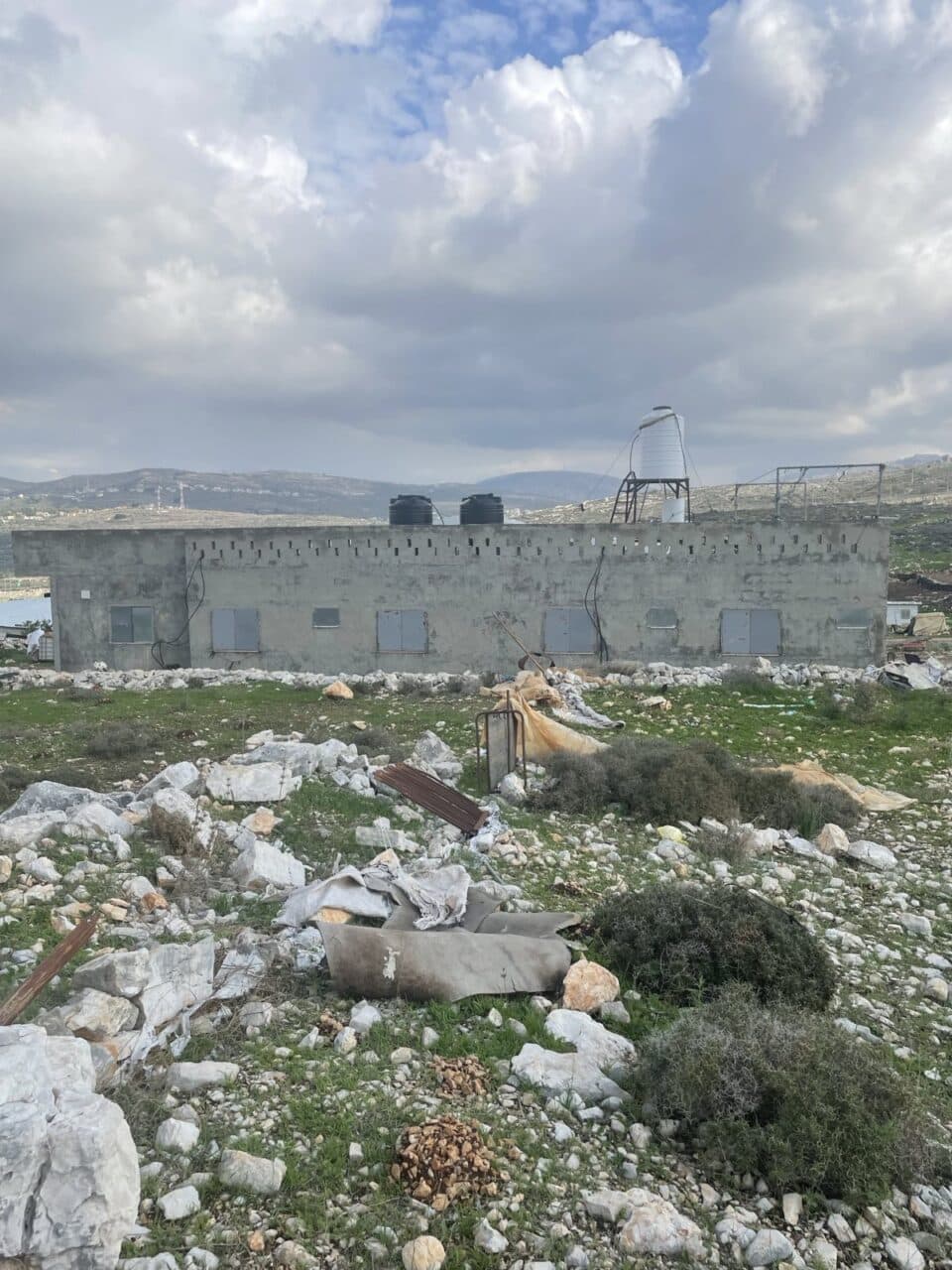-
Visual diary: a day in Umm al-Khair
4 January 2026 Good morning from Umm Al-Khair. This is the village where Awdah Hathaleen was born, did community organizing, started a family, was involved with the production of the Oscar-winning film “No Other Land,” and then on July 28th, 2025 was murdered by a settler. Many, many international activists from all over the world […]
-
Israeli settlers, backed by army, attack family in Hammamat Al-Maleh
Saturday 27 December — Israeli settlers stormed Hammamat al-Maleh, in the Northern Jordan Valley. They forced their way into Burhan Ali Daraghmeh’s home, beating his 12-year-old daughter and two of his grandchildren. The settlers called for reinforcement, and as more settlers showed up, they started vandalising multiple homes and assaulting the women of the community. […]
-
Palestinians continue to resist after brutal settler attack in Deir Sharaf
On the night of 11 November 2025, between Beit Lid and Kufr Kaddum, settlers brutally attacked 5 families who were living in the home they moved to in 1979. At the time of the attack, around 10 people were inside the house, mostly women and children, with 4 men out in the garden. That night, […]
Action Alert An Nabi Saleh Apartheid Wall Arrests BDS Bethlehem Bil'in Cast Lead Demonstration Denial of Entry Ethnic Cleansing Farmers Gaza Global Actions Hebron House Demolition International law Israeli Army Jerusalem Live Ammunition Nablus Ni'lin Prisoner Ramallah Rubber-coated steel bullets Settlement Settlers Settler violence Tear-Gas Canister Video



